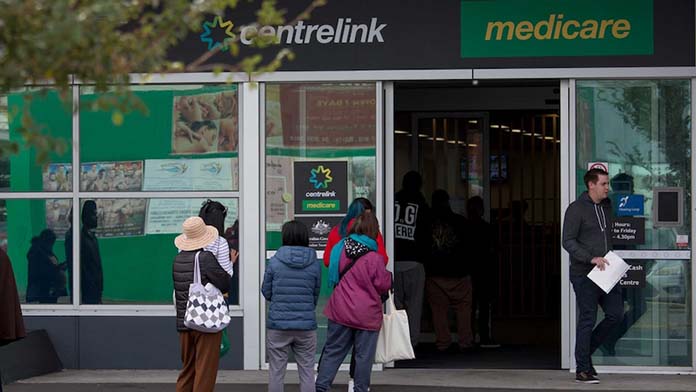The Royal Commission into the Liberals’ Robodebt scheme has exposed the scale of lies and cover up that went into defending an illegal policy designed to punish the poor.
In 2014 Scott Morrison became Minister for Social Services. He said he would be a “tough welfare cop” committed to cracking down on welfare recipients.
Officials in the Department of Human Services (DHS) took the same approach. The inquiry heard there was constant pressure to produce cuts backed by a culture of fear, created chiefly by department secretary Malisa Golightly.
In 2015 Morrison did a series of interviews promising a crackdown. DHS officials took this as a signal to push ahead with an automated scheme to issue debts regarding undeclared income. It worked by averaging yearly income and matching this to fortnightly Centrelink statements.
Before all this, in December 2014, the idea had been knocked back by the Department, whose lawyers said an “income averaging” system was illegal. DHS simply removed reference to “income averaging”, and reassured officials it wouldn’t be used to calculate debts. This was a blatant lie. The Department of Social Services found out a year and a half later, but did nothing.
Again and again senior officials prevented efforts to check the scheme’s legality. In 2017, in response to growing criticism, junior officials wrote a draft request to the Australian Government Solicitor for advice. This was never sent.
In 2019, when faced with a legal challenge and forced to actually seek the legal advice, they were told the scheme was likely unlawful. They responded by recalculating the individual debt concerned to zero and arguing there was no case to answer.
Stuart Robert, the final minister in charge, admitted to lying to defend the scheme for months after learning of the problem, citing “cabinet solidarity”. “As a dutiful cabinet minister, ma’am, that’s what we do,” he told the commissioner. It’s a rare moment of honesty when a politician can admit lying is part of the job description.
The mental distress, financial hardship and suffering of over 443,000 victims has been laid bare.
The Robodebt scandal shows how far the government and public service will go to attack the poor and cut spending. It has revealed a public service so keen to please their superiors that they repeatedly ignored warnings that it was illegal.
By Cooper Forsyth






